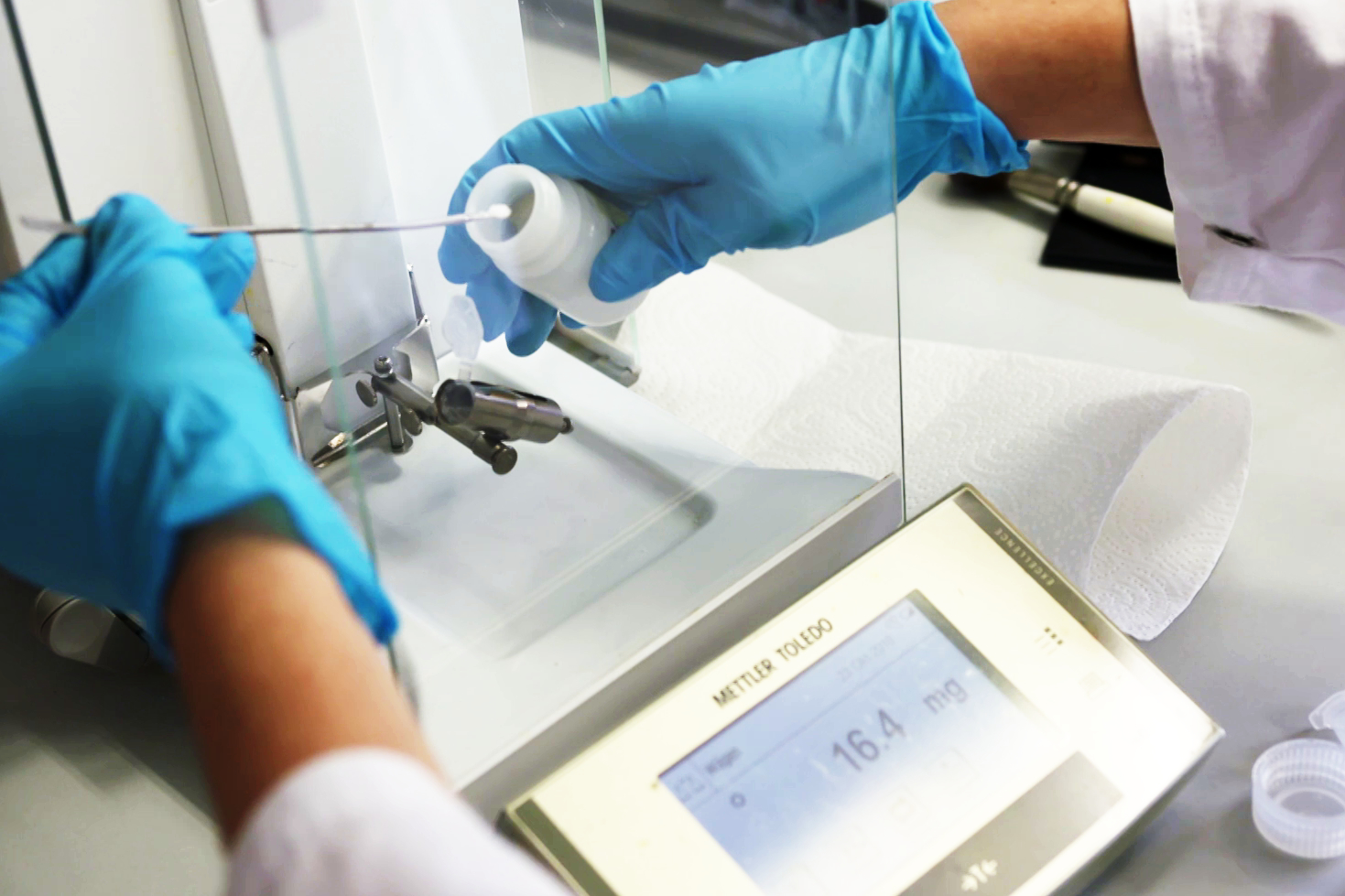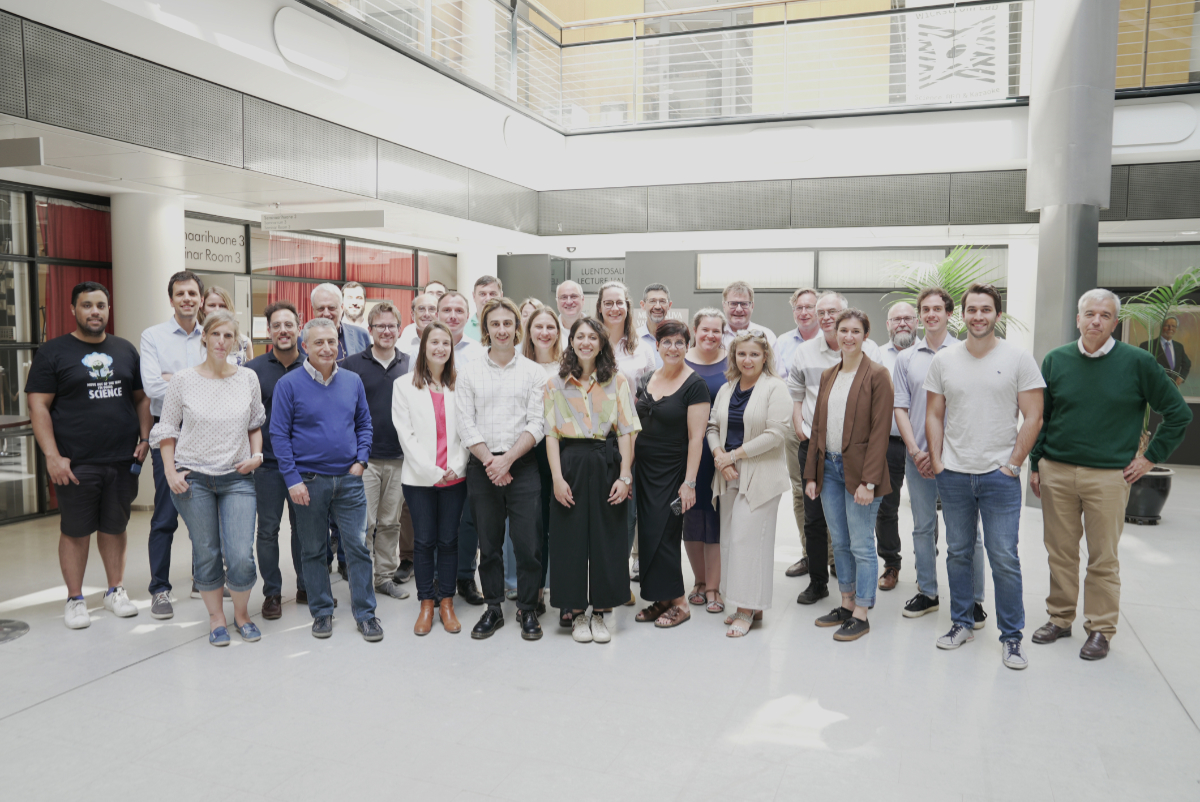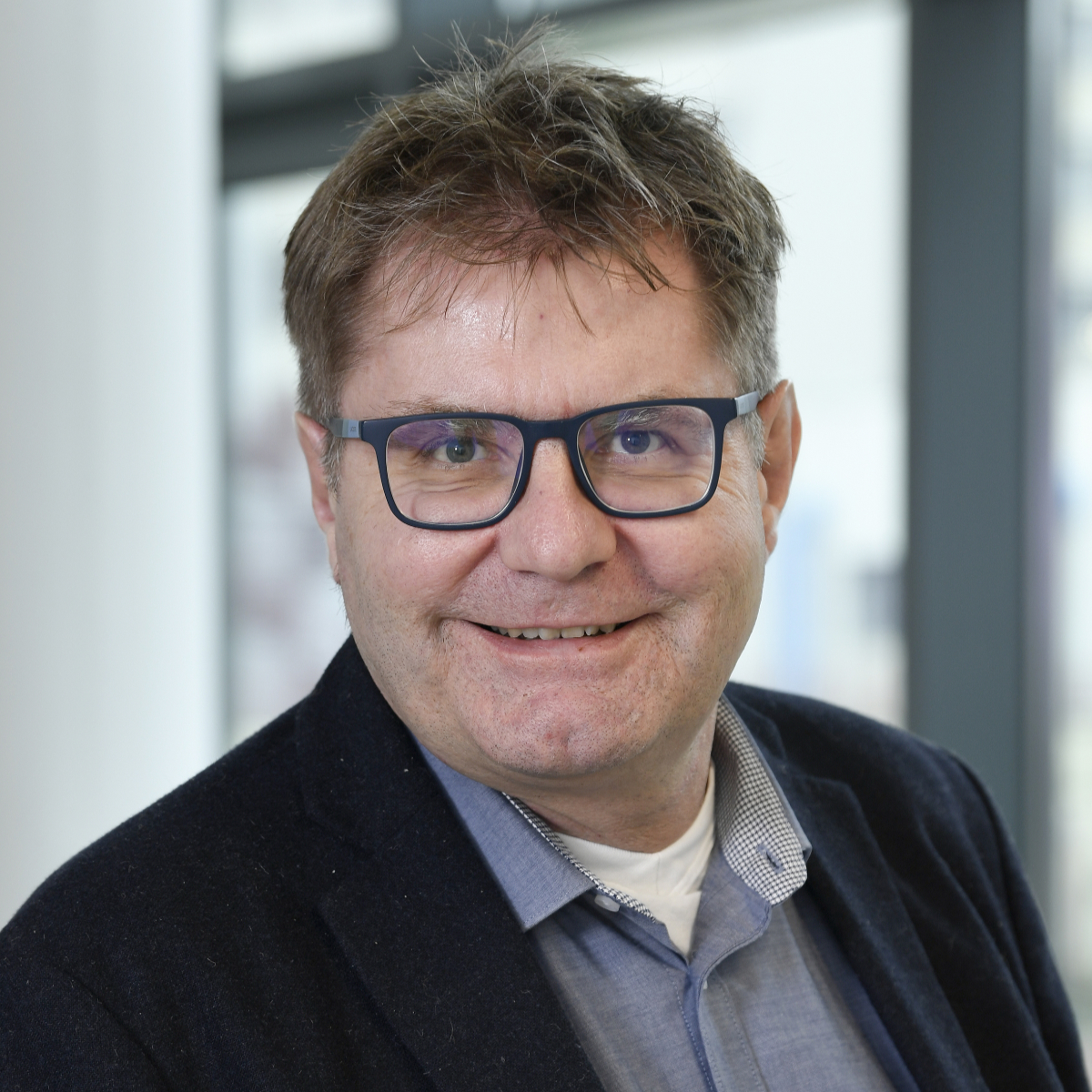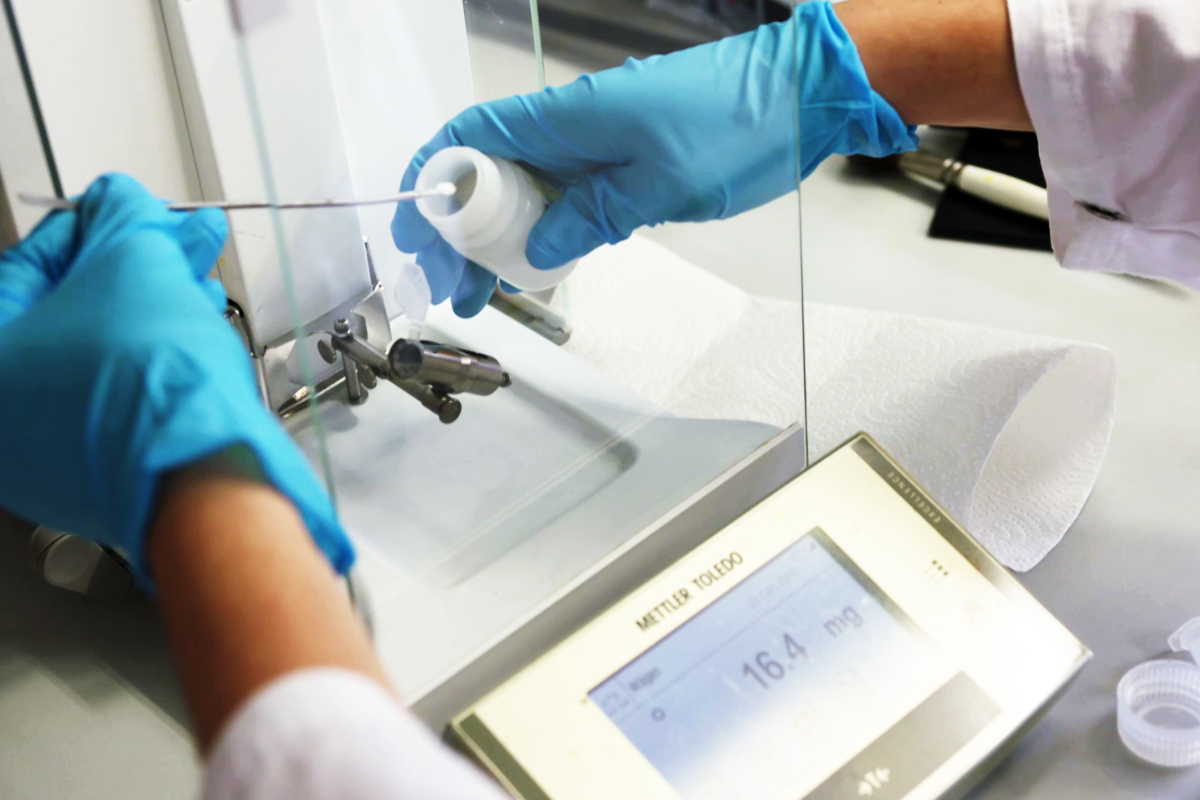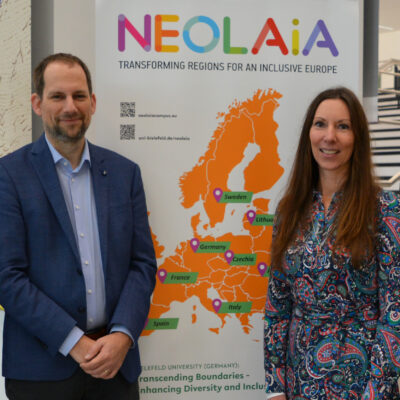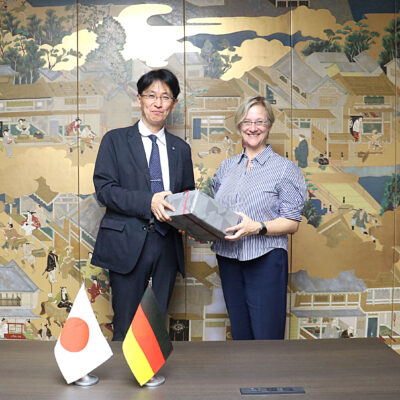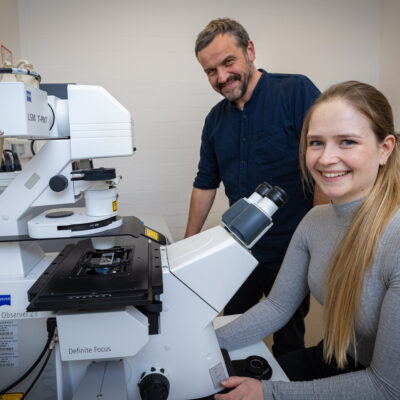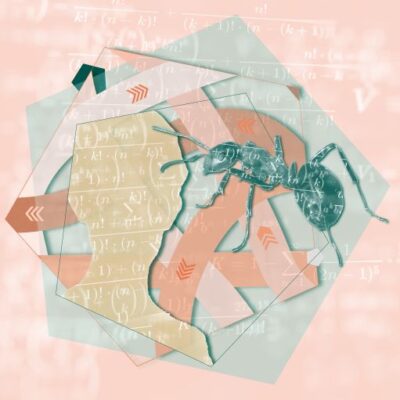Surgery, radiation, and chemotherapy are the three main therapies used to treat cancerous tumors. The doctoral research network ‘Magicbullet::Reloaded’ is investigating another approach, with 15 doctoral researchers developing special molecules that stimulate the immune system to destroy tumor cells. In a new video, network members explain how doctoral researchers gain valuable experience and research opportunities as part of the network.
Doctoral researchers from organic and medicinal chemistry, tumor biology, and pharmacology will be conducting research at the network through 2024. The collaborative training network consists of nine universities, two research institutions, and four pharmaceutical companies in Germany, Switzerland, the UK, Finland, Italy, and Hungary, and is also being supported by another four companies. Professor Dr Norbert Sewald, a chemist at Bielefeld University, serves as network coordinator. The European Union is providing the network with approximately four million Euro in funding.
I am a curious person and I like challenges.
Having a group that can support each other and having different labs, and everybody’s willing to help, this is amazing.
Almost everyone has a personal relationship to cancer.
Everyone has someone in their family, or maybe a friend, or maybe a relative that has struggled with cancer.
The research we do here with Magic Bullet—maybe has the chance to have someone, like, down the line in the future,
even if it’s a slim chance.
I think, that’s sort of what motivates me the most.
Magic Bullet Reloaded is, in fact, the second edition of a European training network. It is devoted to the targeted delivery of antitumor agents to avoid side effects in tumor therapy: It is an European graduate school
bringing together scientists from chemistry and biology from all over Europe. And the PhD students will also spend some time in other places to learn other techniques. I hope that we will improve with what we are synthetizing and also researching, that the patient can overcome the problems of the chemotherapy. So to have anti-cancer drugs that are selective and that can avoid the collateral damages of the normal chemotherapy and also the psychological situation for the patient. This is our training network and this is the aim of the network: to help each other with our expertise. But also because there is a direct collaboration between chemists and biologists. This is really great because you can ask what you think about this test or what is better. So it’s really helpful. You have 15 PhD students in total and you have like a lot of different labs from all over Europe. Magicbullet::reloaded is an excellent example for European funded science and unified Europe is, from my point of view, also a major benefit for politics, economy, but also for science.
Changing laboratory is also changing perspective. And so this can trigger some ideas in you and then it can help your project.
So I think getting out of your comfort zone and like learning new things and adapting to a new research environment and meeting new people and then exchanging new ideas
are quite important.
And in this network you receive a lot of training, courses, conferences like really prepare you to continue and be a good scientist.
We got different type of training for different aspects.
That was important because doing research is not only doing it in the lab, but it’s important also to communicate that and so we got training in how to write a paper or in how to address our research to the public.
The best aspect of having this network is the support of like 20 or 30 people behind you, which feels really nice.
And I mean research ist tough and this network is like a family.
So whenever you have a problem there are always people coming in for helping you and that was super cool.
It’s really a nice team.
We are really a group.
To develop these targeted, minimally invasive anti-cancer drugs, Magicbullet::Reloaded researchers attach a substance that can damage tumor tissue to a transporter molecule. Transporter molecules include, for instance, small proteins called peptides, which recognize molecules characteristic of cancer cells. They then bind to these cancerous cells and deliver the substance, which then stimulates an immune response in the tumor cells. This approach is designed to help overcome the problem of developing resistance to the very immunotherapies that are meant to destroy cancerous cells. ‘Antitumor agents have an address label, so to speak, that indicates which cells they should be delivered to,’ says Norbert Sewald. According to Sewald, medications that work in this way could help make the early vision set forth by Nobel Laureate Paul Ehrlich (1854-1915) a reality. Ehrlich coined the term ‘magic bullet’ to describe such targeted active substances.
In addition to Bielefeld University, the consortium includes Eötvös Loránd University, in Budapest, Hungary; the Swiss Federal Institute of Technology in Zürich, Switzerland; Newcastle University in the UK; the Technical University of Darmstadt in Germany; the University of Helsinki in Finland; the University of Insubria in Italy, the University of Milan in Italy, and the University of Cologne in Germany.
Since 2019, Magicbullet::Reloaded has been funded as a Marie Skłodowska-Curie Innovative Training Network with a total of approximately 4 million Euro as part of the European Union′s Horizon 2020 research and innovation programme (grant agreement No. 861316). The training network builds upon the research coordinated by Dr. Sewald from the ‘Magicbullet’ innovative training network that ran from 2015 until 2018.
